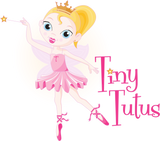The Myth of ‘Parents as Distractions’: Debunking Common Misconceptions
The Myth of ‘Parents as Distractions’: Debunking Common Misconceptions
For years, dance studios have told parents some version of this line:
“Children behave better without parents watching.”
Or:
“Your child will learn more if you leave the room.”
At Tiny Tutus, we’re here to say:
That’s simply not true. And it’s time we stop pretending it is.
Tiny Tutus was the first Australian dance school to create a fully open-class model, where parents are welcome to stay, watch, and support their ballerinas from inside the studio, seated at the back, as part of the learning environment.
We did this not because it was convenient, but because it was right.
Because children thrive when their grown-ups are included.
And because the idea that “parents are distractions” is one of the most harmful, outdated myths in the dance world today.
🔍 Let’s Talk About the Real Distraction
If a child is struggling to concentrate, it’s not because a parent is quietly seated at the back of the room.
More often, it’s because:
- The class isn’t structured in an age-appropriate way
- The expectations are too high for the child’s developmental stage
- The teaching style doesn’t support emotional safety and gentle transitions
- The child feels overwhelmed, unsure, or disconnected
Blaming parental presence is a convenient excuse, one that shifts the responsibility away from the studio and onto the family.
But at Tiny Tutus, we don’t believe in shifting blame.
We believe in designing a class that works with the child, with their parent, and with their needs.
💡 What the Research Actually Says
In early childhood education, there is a strong body of evidence showing that:
- Parental presence supports emotional regulation
- Young children learn better when they feel secure
- Shared experiences between parent and child strengthen language and confidence
- Visibility fosters connection, not chaos
That’s why in nearly every other preschool-aged activity, swimming, soccer, gymnastics, music classes, parents are welcome, if not required to stay.
Only in dance do we hear: “Please wait outside.”
So we have to ask:
Why the secrecy?
Behind Closed Doors: What Are They Hiding?
This myth wouldn’t matter so much if it were harmless. But it’s not.
When parents are locked out of the studio, they:
- Don’t know what actually happened in class
- Can’t support their child’s learning or emotional growth at home
- Lose trust in the process — and rightfully so
Your child could be struggling, crying, excluded, or simply sitting disengaged — and you wouldn’t know.
And if the only glimpse you get is at the end-of-term concert, you’re seeing performance, not the reality of the classroom.
Tiny Tutus: Where You’re Always in the Room
At Tiny Tutus, parents are seated in chairs at the back of the studio, within the classroom itself so you can:
- Watch your child’s growth unfold week by week
- Understand the structure, the steps, and the sparkle
- Be present for the wobbles, the breakthroughs, and the magic
You don’t interfere. You don’t hover.
You simply exist in the room as a loving, supportive presence and your child knows it.
That alone changes everything.
We Don’t Hide. We Welcome.
We designed our curriculum with parental presence in mind, not in spite of it.
Our teachers are trained to deliver beautiful, focused classes with grown-ups quietly present.
And our studio culture is built around visibility, openness, and shared celebration.
Because dance shouldn’t be something you guess about.
It should be something you experience together.
Come See What We’ve Always Believed
We’ve never needed to hide behind a closed door.
We’ve never bought into the myth of “parents as distractions.”
And we’ve never believed that children learn best by being separated from the people they love most.
We'd love to welcome you to Tiny Tutus! Book a Trial Class today or Learn More About Our Program here
